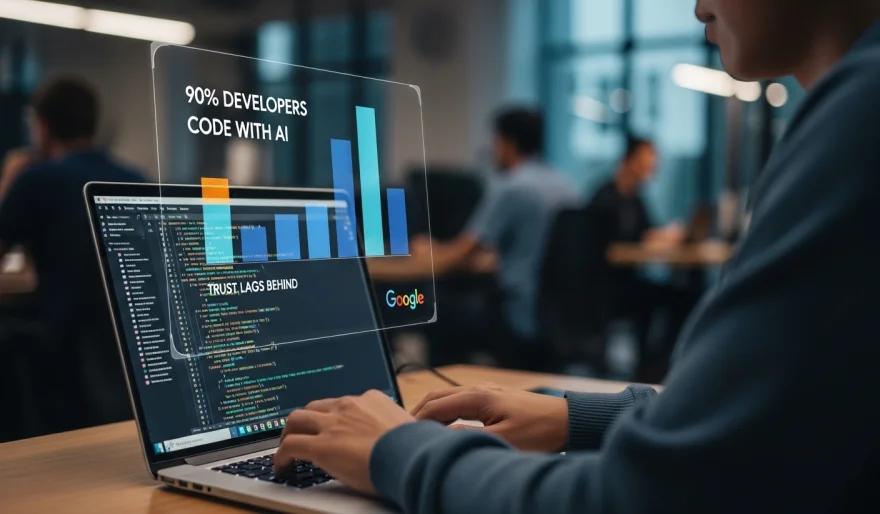Stay Ahead of the Curve
Latest AI news, expert analysis, bold opinions, and key trends — delivered to your inbox.
Google Report: 90% of Developers Now Code With AI, But Trust Lags Behind
3 min read Google says 9 out of 10 devs now code with AI. Two hours a day, every day. Productivity’s up, trust is shaky. The future of coding isn’t man vs machine—it’s devs who can steer AI replacing those who can’t. September 25, 2025 17:33
Remember when AI-assisted coding was seen as a sidekick tool for the curious few? That era is gone. According to Google’s latest DORA 2025 report, 90% of software developers now weave AI into their daily workflows—a 14% jump in just a year.
On average, devs are spending two hours a day with tools like GitHub Copilot, Gemini, and ChatGPT. For 65% of them, it’s not just a helping hand—it’s become essential. The results? Productivity spikes, faster iteration, and, in some cases, cleaner code.
But here’s the catch: trust hasn’t caught up with adoption. Only a quarter of developers say they “fully” trust AI’s outputs. The rest? They double-check, review, or sometimes toss the AI’s work entirely. And they have reason to be cautious—hallucinations, buggy code, and security concerns don’t disappear just because usage is high.
The report calls AI a “mirror and multiplier.” In strong engineering teams, AI supercharges output. In messy, fragmented setups, it magnifies chaos. Think of it like caffeine: great if you’ve got discipline, dangerous if you’re already shaky.
The bigger shift isn’t just about speed—it’s about what developers are valued for. AI is eating the grunt work, meaning human engineers are increasingly prized for architecture, problem-solving, and judgment. In other words, the job isn’t disappearing, it’s evolving.
My take? We’ve crossed the line where ignoring AI is no longer an option. For devs, it’s as basic as Stack Overflow was a decade ago. But heavy dependence has risks. If everyone codes through AI, what happens to skill depth, resilience, and the next generation of builders?
The future isn’t AI replacing developers—it’s developers who know how to wield AI replacing those who don’t.



















 AI Agents
AI Agents